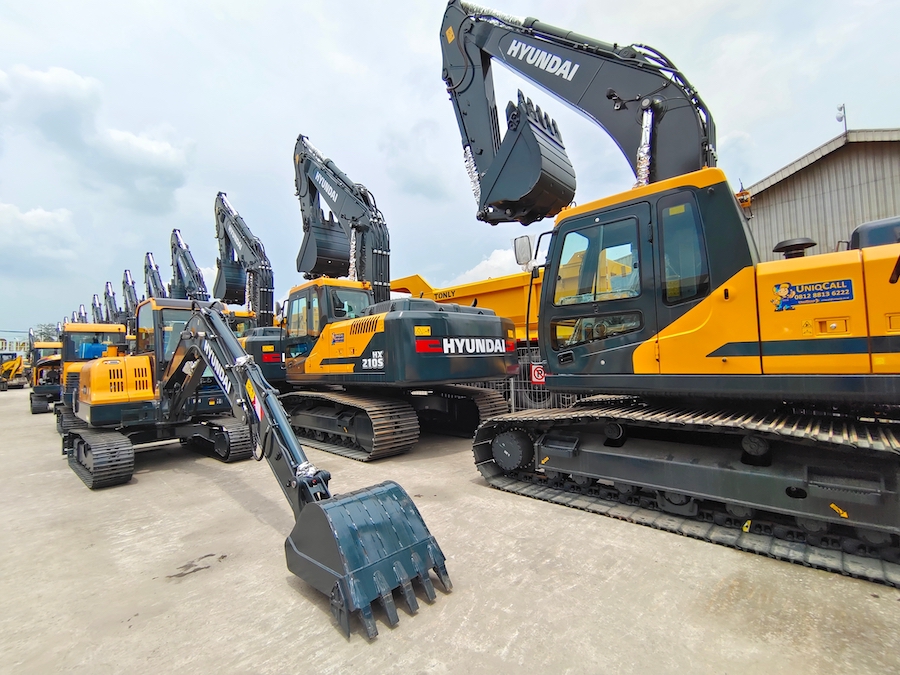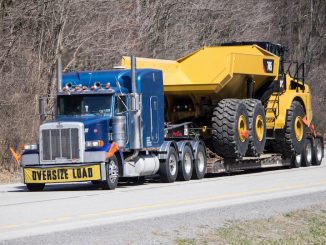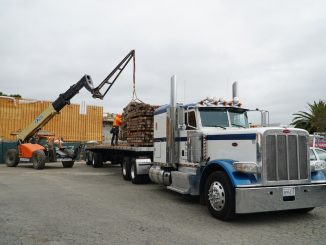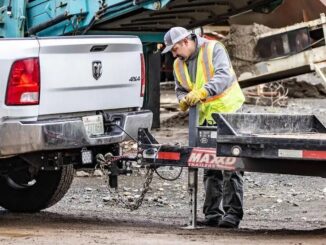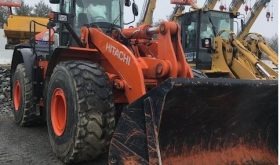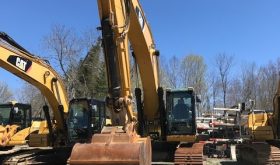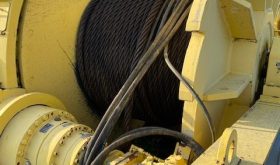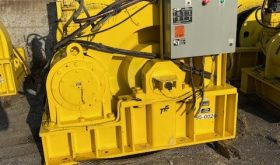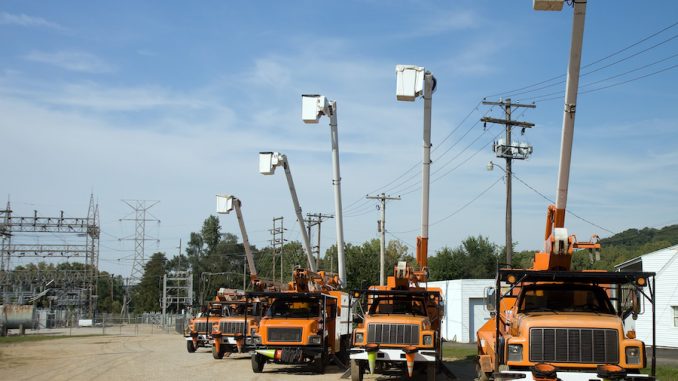
View the complete article here.
Various industries rely on bucket trucks to perform certain tasks. However, with the vast amount of models available, it can be difficult to find the right one to buy or rent. Will the truck perform well for your industry? Does it come with the correct accessories? Below you’ll discover a handful of tips you can use to ensure that your investment is worthwhile.
8 Tips to Consider When Buying or Renting a Bucket Truck
Evaluate the Type of Work You Plan to Do With It
Bucket trucks come in numerous designs that cater to certain fields. When searching for the right one to buy or rent, you should consider the type of work you plan to do with it. For example, do you plan to use it for electrical work or do you want to trim tree limbs? This will help you to narrow down your search by finding a bucket truck that matches these specifications.
During your search you’ll find that bucket trucks come in three types. These include articulated over-centered, telescopic articulated, and insulated.
Articulated Over-Centered
This bucket truck keeps its boom in the center of the truck. When activated, the boom can be moved and extended in different directions.
Telescopic Articulated
A telescopic articulated bucket truck doesn’t move well, but it can be extended to a high height.
Insulated
An insulated bucket truck is best for electrical work because it contains a special non-conductive padding that protects one from electrocution.
Check the Platform Height and Style
Another good thing to look at is the platform height. Most bucket trucks feature a boom that can be adjusted to reach a height anywhere from 29 to 125-feet. If you plan on doing jobs that require significant elevations, you’ll want to make sure the platform can reach it.
Besides its height, consider the platform’s style. Bucket truck platforms are usually built to be over-centered or non-over-centered.
Over-Centered
An over-centered platform has an average height of 55-feet and moves horizontally at 50-feet. It’s more flexible than non-over-centered platforms which allows the user to reach areas with ease.
Non-Over-Centered
A non-over-centered platform is best for open-air jobs, such as electrical work, that don’t require much movement. They will turn at a 180-degree angle but don’t have a telescopic ability.
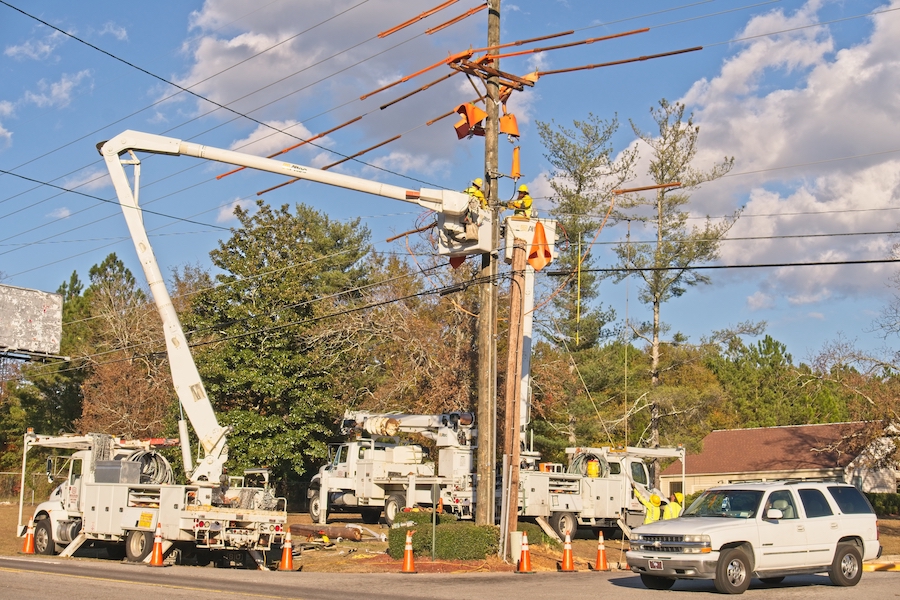
Review its Weight Capacity
You’ll want to review the truck’s weight capacity. Most of the time, bucket trucks won’t have a heavy weight capacity if it has a high elevation or long side reach. If you choose a bucket truck that doesn’t give you the correct weight distribution, it will make the vehicle unsteady.
A bucket truck tends to have a weight capacity between 400-2,000 pounds. If you need to haul equipment to the job site, you’ll need a bucket truck that can safely do so. Keep in mind that the heavier the truck is, the pricier it will be. Despite this, you will get more space and security with a dense weight.
Look at the Chassis
The chassis is the bucket truck’s framework and is custom-made to fit the body. While it might not be obvious, it plays an important role in how well the truck will work because it’s what determines the max gross axle weight (GAWR). If the vehicle’s chassis is created for low-impact jobs, it will have a GAWR of 6,000-14,700. For large jobs, the chassis will feature a GAWR of 20,000-34,000.
Inspect the Body Type
Bucket trucks come in three body types: fiberglass, aluminum, and steel.
If you plan to do heavy-duty work, steel and aluminum are best because they can withstand tough tasks and not get damaged easily should something hit the truck. Aluminum is also corrosion-resistant which can prevent your truck from getting unsightly rust patches.
On the other hand, if you need to drive the truck up high elevations or long distances, fiberglass might be ideal because it’s lightweight. It also uses less fuel making it a good option for those who want to save money on fuel costs.
Look for Accessories
Depending on what you plan to use the bucket truck for, you should confirm that it comes with adequate accessories. For instance, if you need it for forestry issues, check that the truck is equipped with a boom strap and chainsaw scabbard. These will assist you in reaching tangled limbs and vines. If you plan to use it for electrical work, the truck should have an air compressor and wire dispenser attached so you can quickly wire utility poles.
Other items to look for include side buckets, tool holders, ratchet strap holders, and knuckle hooks.
Monitor its Fuel Requirements
Bucket trucks will either need gasoline, diesel, or hybrid fuel to run. For those planning to do smaller jobs with it, a gasoline bucket truck is best due to its impressive fuel capacity and compactness. For those who need something more powerful, diesel or hybrid bucket trucks will be ideal to invest in due to their energy-efficiency and large size. They’re also built to withstand rough terrain without putting strain on the engine.
See How Reputable the Dealer Is
There are a few ways you can tell if you’re working with a reputable dealer before you purchase or rent from them. One is to see if they do consistent inspections of the bucket truck. By doing so, they’re ensuring it’s in good condition and will be safe to use for your job.
In addition to this, ask if the seller offers a service level agreement that will protect you should something go wrong. This agreement will also make sure that the dealer responds quickly about maintenance questions or service requests. They should also offer a warranty for the vehicle so that you are provided with spare parts should a component need to be replaced.
It can be difficult to find the right bucket truck to buy or rent due to the vast specifications you need to consider. By keeping the tips above in mind, you can carefully determine the right model for your needs.
View the complete article here.
How do I choose the right type of bucket truck for my specific industry needs, considering options like articulated over-centered, telescopic articulated, and insulated designs?
Evaluate the type of work you plan to do, such as electrical work or tree trimming, to determine whether an articulated over-centered, telescopic articulated, or insulated bucket truck suits your industry requirements.
What factors, such as platform height, weight capacity, chassis type, body material, and accessories, should be considered when buying or renting a bucket truck?
Consider platform height for job requirements, review weight capacity for stability, inspect chassis for max gross axle weight, choose a suitable body material (fiberglass, aluminum, or steel), and ensure the truck comes with necessary accessories like boom strap, chainsaw scabbard, and wire dispenser.




































